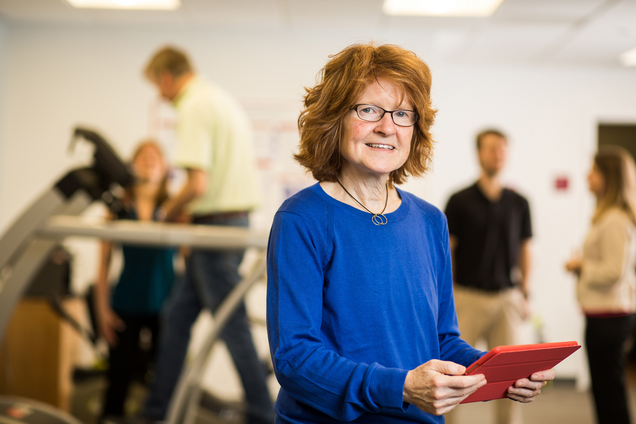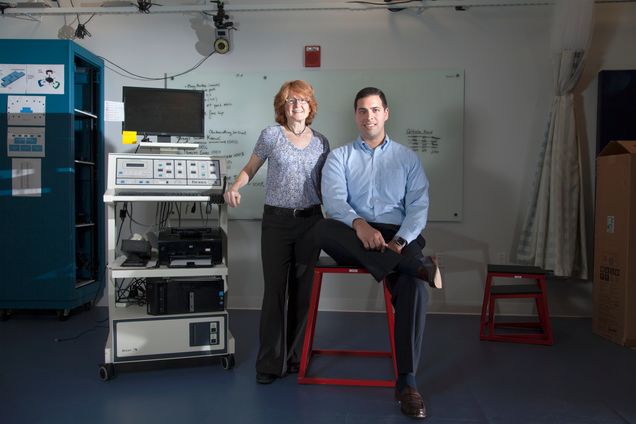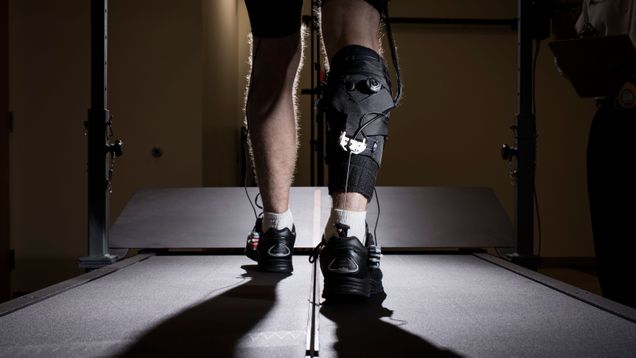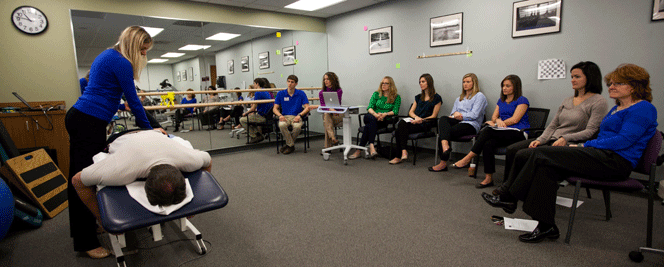News
National Science Foundation News: “Revolutionary Robotics [Parkinson’s Patients]”
Parkinson's disease is a neurodegenerative disorder that affects more than 9 million people worldwide. Debilitating symptoms include tremors, slowness, and freezing, which occur when someone with Parkinson's suddenly loses the ability to move their feet, often mid-stride, causing stutter-steps and even life-threatening falls.
Finding a solution brought together engineers and rehabilitators to study the gait of volunteers with Parkinson’s. NSF-supported researchers at Boston University Sargent College of Health & Rehabilitation Sciences and Harvard John A. Paulson School of Engineering and Applied Sciences have used a soft, wearable robot to help volunteers with Parkinson's walk faster and further without freezing.
New Research in Nature Medicine: Soft Robotic Apparel to Avert Freezing of Gait in Parkinson’s Disease
Freezing of gait (FoG) is a profoundly disruptive gait disturbance in Parkinson’s disease, causing unintended stops while walking. Therapies for FoG reveal modest and transient effects, resulting in a lack of effective treatments.
In a paper published in Nature Medicine authored by our physical therapy researchers Terry Ellis, Teresa Baker, Franchino Porciuncula, and Nicholas Wendel with their Harvard partners at the Wyss Institute, researchers show proof of concept that FoG can be averted using soft robotic apparel that augments hip flexion. The wearable garment uses cable-driven actuators and sensors, generating assistive moments in concert with biological muscles.
Read the paper in Nature Medicine.
Feature Story: CNR Volunteers are Key to New Breakthroughs for Treating Parkinson’s Disease
Volunteers at BU's Center for Neurorehabilitationare key to new breakthroughs for treating Parkinson’s disease, including both a music system and wearable robotics that help patients walk faster and farther.
Exercise App Could Revolutionize Treatment for Parkinson’s Disease
"The data are clear: exercise helps people with Parkinson’s disease. “Not only is exercise good for you but it slows the progression of disability,” says Terry Ellis, a Boston University Sargent College of Health & Rehabilitation Sciences associate professor and director of the Center for Neurorehabilitation. “It may even slow progression of the disease.”" Read the full article.

Cristina Colon-Semenza Named Ryan Summer Fellow at Sargent College

The Ryan Scholarship provides three months of summer support for a Sargent PhD student engaged in research relevant to the mission of the
Ryan Center. University Trustee and Sargent Dean’s Advisory Board member, Sharon Ryan, and her husband, Bob Ryan, endowed the Ryan Summer Fellowship in 2017.
Colon-Semenza was selected for this scholarship because of her scholarly achievements in the Rehabilitation Sciences program and potential to contribute significantly to physical therapy practice.
Soft Exosuit Research Featured in BU Today
"Lou Awad and Terry Ellis, both Sargent College of Health & Rehabilitation Sciences assistant professors of physical therapy, are part of the team behind the medical exosuit, a wearable robot that can help people who have had a stroke walk faster, farther, and more safely. Instead of Iron Man’s titanium, it has breathable wraps made from proprietary materials, thin cables, and a series of small motors that help it mimic human muscles and tendons." Read the full article.

The Scientist: “Next-Generation Exoskeletons Help Patients Move”
"If they’re both lucky and well-insured, stroke patients get a few weeks of inpatient rehabilitation therapy, says physical therapist Terry Ellis, who collaborates with Walsh and directs the Center for Neurorehabilitation at the Boston University College of Health and Rehabilitation Sciences: Sargent College. But with limited time, rehabilitation specialists focus on getting patients walking again in whatever way possible, often with the use of a walker, a cane, or a hard plastic 90-degree brace that keeps their weaker foot from 'dropping' as they lift it off the ground to take a step." Read the Full Article.

Boston Metro: “Boston researchers develop a robotic suit to help stroke patients walk”
"Stroke patients may soon be able to wear a robotic suit that can help them walk without a limp. Researchers at Boston University’s College of Health & Rehabilitation Sciences and the Harvard School of Engineering worked together to develop a wearable 'soft' robotic suit, also called an exosuit, that can help with post-stroke recovery. " Read the Full Article.

Robotic ‘exosuit’ fixes stride after stroke
"'People who have had a stroke have trouble with dorsiflexion, or foot clearance,' says Terry Ellis, a physical therapy professor at the Boston University College of Health & Rehabilitation Sciences: Sargent College; they have a reduced ability to bend their ankle and lift their foot. When they try to plant their heel on the ground to walk, they instead 'drag their toes and their foot gets caught.' The exosuit counteracts that issue by retracting the cable attached to the shoe’s tongue, applying a small amount of force to bring the toes up. When the wearer needs to take a step forward, the rear cable contracts to ensure their foot pushes off the ground, a movement called plantar flexion." Read the Full Article.
BU Neuroresidency Program Partners with Spaulding Rehabilitation
Sargent College's Center for Neurorehabilitation joined with Spaulding Rehabilitation Network’s Medford Outpatient Center “in order to add a broader, extremely high-caliber, rigorous outpatient training across numerous neurological conditions,” says Terry Ellis.
